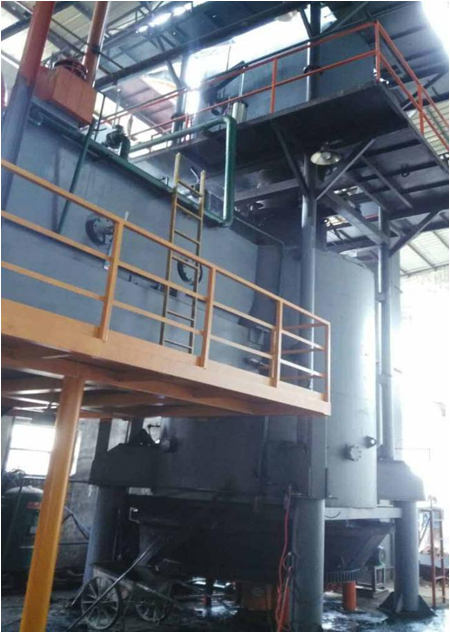As an important facility for treating urban wastewater, water washing plants play an important role in guaranteeing water quality safety and environmental sanitation. However, the application of traditional energy in water washing plants not only suffers from high energy consumption and emission pollution, but also does not meet the current trend of green and low-carbon development. In order to solve this problem, more and more water washing plants are turning to biomass boilers, which utilize biomass energy to provide clean and efficient energy supply for the plants.
I. Characteristics of water washing plants
As a facility for treating municipal wastewater, a water washing plant usually requires a large amount of hot water and steam for wastewater treatment, equipment cleaning and other process operations. Traditional energy sources such as coal or fuel oil can meet the energy needs, but in the use of the process of emissions, energy consumption and other issues are becoming more and more prominent, has not adapted to the pursuit of green, sustainable development of the water washing plant requirements.
II. Application of biomass boilers in water washing plants
Biomass boilers use renewable biomass resources as fuel, such as wood chips, straw, etc. The biomass is converted into gas through gasification technology to provide the required heat and steam for the water washing plant. Compared with traditional energy sources, biomass boilers have the following advantages:
- Environmental purification: Biomass gasifier adopts advanced SCR denitrification technology, which can effectively reduce the emissions of nitrogen oxides and sulfides in the exhaust gas, significantly reduce the pollution of the atmospheric environment, and help the water washing plant to create a clean production environment.
- Energy substitution: biomass resources are widely available, the price is relatively stable, compared with traditional coal or fuel oil, biomass boiler fuel costs are lower, can effectively reduce the energy costs of the water plant, improve economic efficiency.
- Resource recycling: The use of biomass as fuel not only reduces the dependence on fossil energy, but also promotes the recycling of biomass resources and realizes the sustainable development of energy.

III. Advantages of adopting EMC energy management model for water washing plants
EMC (Energy Management and Control) energy management mode is a kind of energy management method based on advanced information technology and intelligent control system, which realizes efficient use of energy and cost reduction by monitoring, analyzing and optimizing energy consumption. When applying biomass boiler in water washing plant, adopting EMC energy management mode can bring the following advantages:
- Real-time monitoring: The EMC system can monitor the energy consumption of the water washing plant in real time, including the operation status of the biomass boiler, fuel consumption, etc., providing timely data support for the enterprise.
- Intelligent control: Based on the monitoring data, the EMC system can realize intelligent control of the biomass boiler, adjusting the fuel supply, combustion parameters, etc., so as to make its operation more stable and efficient.
- Optimization management: Through the analysis of energy consumption data, bottlenecks in energy consumption and potential energy-saving measures can be found, helping the water washing plant to achieve optimal management of energy costs and enhance the competitiveness of the enterprise.
IV. Cost-benefit profile
Taking Ningbo water washing plant as an example, the biomass gasifier + SCR denitrification technology is adopted, and the concentration of exhaust gas emission is effectively controlled to meet the environmental requirements. Biomass boiler investment of 8 million yuan, relatively low operating costs, and the use of EMC energy management model for intelligent control and optimization of management, further reducing energy consumption, and improve the economic and environmental benefits of the water washing plant.
V. Conclusion
The application of biomass boiler in the water washing plant can not only meet the energy needs of the water washing plant, but also realize the multiple benefits of environmental protection, purification, resource recycling, etc., and help the water washing plant to move towards the direction of green and sustainable development. At the same time, the use of EMC energy management mode, can further improve the operating efficiency and economic benefits of biomass boilers, to create greater value for the enterprise.


